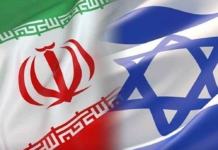Today, there are over 195 countries in the world, each scared and struggling for its national security. It is said that when one fulfill the basic needs, he goes for self actualization. In that sense, many countries have achieved more than what we envy, yet the struggle for survival and hunger for power resides among them. In fact the urge for control is much stronger in the first world countries than the third world countries. Nuclear technology was initially a pursuit for power, but later on, it became a pursuit for survival. For powerful countries like US, Soviet union, France; nuclear technology was a status symbol while newborn countries like Pakistan wanted to ensure the survival.
When US became a nuclear power, it was aware that sooner later, its major rivals like Soviet union and China would eventually become a nuclear power. US knew that countries like France, UK, India will pursue the nuclear defense as well, but what it did not saw coming, was Pakistan becoming a nuclear power.
And Pakistan would probably never even bother to have it, if it wasn’t for India. When India conducted its first nuclear test in 1964, there was a major imbalance in power across the region. India was already outnumbering Pakistan in all defense departments and having a technology that is capable of mass destruction was alarming for Pakistan.
To counter this, Former Prime minister Zulfiqar Ali Bhutto opened the first nuclear plant near Karachi in his tenure, however, the first test was conducted in 1998 under the leadership of former Prime minister Nawaz Sharif despite severe pressure from US. Of course Pakistan was forced to give up its nuclear defense program and it was not the only country that faced it. Ukraine was also forced to do the same, and it did give up its nuclear program amid several pacts and agreements that ensured its national security and today it is facing the consequences. It is under attack despite several promises made by international community in past. Same promises were made to Pakistan as well, however, we did not fell for them.
The advent of nuclear weapons changed the entire course of power dynamic. A culture of simply outnumbering your rivals in terms of weapons was gone. Since it was a scientific technology, there came an opportunity for the weak countries to acquire a status in global game by becoming a nuclear power. Initially it was thought that nuclear technology was a privilege confined to the elite countries only. But later on, it was realized that it is all about uranium, some carefully calculated formulas and some loyal scientists who would devotedly work for the cause. In fact, it was more about having the guts to do so.
India had begun to develop its nuclear program since its independence. When India became a nuclear power, it was a nightmare for Pakistan, but on the other hand, it was also an indicator that if India can obtain this technology, than there is a possibility for us to have it as well. Because clearly it was not something they got from other nuclear fellows like US or Soviet union. They would never want a country like India to be in the same lane as them. Thus Pakistan also decided to pursue this technology and finally succeeded in 1998 to have this privilege.
The world was shocked. United Nations condemned the test. There was a forceful pressure to handover Dr abdul Qadir khan and his fellows along with threats of economic sanctions but Pakistan successfully addressed the concerns of international community. We got a pass due to good communication skills of the then Prime minister Nawaz Sharif. In his victorious nationwide address after the successful test, he remained very polite in his discourse. Instead of bragging about becoming a nuclear power and teasing rivals, Nawaz Sharif vowed to hold peaceful talks with India and to engage in non aggression pact.
Thus, we not only became a nuclear power without sanctions but also successfully countered the imbalance that we had with India in terms of numbers. No matter how much we lag behind in terms of military personnel, or war equipment, India will not underestimate us and somehow, white house was aware about that. According to a secret leaked memo, Former US state secretary Henry Kissinger was reportedly optimist that if both countries become a nuclear power, they will refrain from invading each other. Maybe he was too optimist because Pakistan and India continued to poke each other. There was Kargil war right after our nuclear test followed by minor clashes on border that became a routine. On 27 feb 2019, Pakistan made it clear that it does not need to rely on nuclear assets to ensure its national security. And its air force and Navy can easily surprise the neighbor without using atomic weapons.
In future, if any country wants to change the power dynamic, it needs to figure out the technology to counter the nuclear weapons. Thus, any country that would be capable of countering a nuclear bomb would be the most powerful country in the world. Let’s hope it would be Pakistan.






